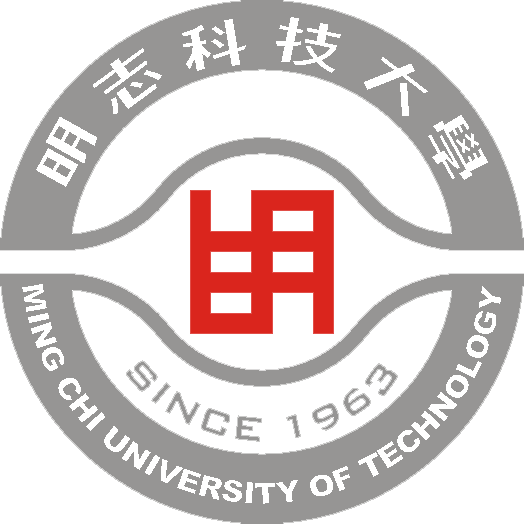Organic Electronics Research Center
Research Field
Dr. Hou-Chin Cha is an assistant research fellow at the Organic Electronics Research Center, Ming Chi University of Technology (MCUT). His work centers on the development of next-generation organic electronic materials and their scalable manufacturing processes. With a strong foundation in structural analysis and material design, he specializes in advancing solution-based fabrication techniques for organic photovoltaics (OPVs) and perovskite solar cells (PSCs). His research has led to breakthroughs in high-efficiency, high-stability large-area solar cell production, particularly through slot-die coating and roll-to-roll (R2R) processing. By integrating academic innovation with industrial feasibility, Dr. Cha’s team has contributed to the transition of emerging solar technologies from the laboratory to commercial-scale manufacturing, addressing key challenges in scalability, stability, and performance optimization.
Established in January 2015, the Organic Electronics Research Center at Ming Chi University of Technology (MCUT) has significantly advanced research and industry-academia collaboration under the leadership of Professor Liu Shun-Wei. With strong support from the chairman, the center has secured 80 million NTD in R&D funding, reflecting its success in both academic and applied research. In 2018, Professor Liu received the Outstanding Technology Transfer Contribution Award and the Wu Ta-You Memorial Award, a rare honor for a private university professor, further enhancing the center’s reputation.
The center’s nine-member team has published more than 45 journal papers and completed 18 projects funded by various ministries and private industry. It has secured nearly 18 million NTD in funding and 2 million NTD from technology transfers. International collaborations with institutions such as the University of Hong Kong, North Carolina State University, and IIT Kharagpur have expanded its global impact.
Focusing on weak light power generation, wearable devices, and medical light sources, the center integrates expertise in materials chemistry, semiconductor processing, biomedical sensing, and spectroscopy. This multidisciplinary approach has positioned it as a key player in Taiwan’s organic electronics research. In 2016, Professor Liu became an Editorial Editor for Scientific Reports, marking a milestone for researchers from technological universities in Taiwan.
- Perovskite solar cells
- Organic electronics, including organic photovoltaics and organic photodetectors
- Large-area process for emerging photovoltaics
- 2023 National Innovation Award (Innoaward) Renewal
- Taiwan Innotech Expo – Gold Medal (2023)
- 2023 NSTC Future Future Tech Award
- The 18th National Innovation Award (2021)
- 2021 National Innovation Award (Innoaward)
- Taiwan Innotech Expo – Gold Medal (2020)
- Taiwan Innotech Expo – Silver Medal (2019)
- Taiwan Innotech Expo – Gold Medal (2018)
- Taipei International Invention Show & Technomart – Gold Medal (2017)
- Taipei International Invention Show & Technomart – Silver Medal (2016)
- Taipei International Invention Show & Technomart – Gold Medal (2015)
- 2023 NSTC Future Future Tech Award
Department of Mechanical Engineering, Chung Yuan Christian University, Taiwan, Ph.D., 2006
Department of Mechanical Engineering, Chung Yuan Christian University, Taiwan, Master, 2000
Department of Mechanical Engineering, National Central University, Taiwan, Bachelor, 1998
2 Vacancies
Job Description
- Literature Review: Investigate the latest advancements in perovskite solar cell research.
- Material Synthesis: Prepare perovskite materials and precursors using various chemical synthesis techniques.
- Device Fabrication: Manufacture perovskite solar cells using solution processing or vacuum deposition.
- Material and Device Characterization: Analyze structural, optical, and electronic properties using spectroscopic and microscopy techniques.
- Electrical Measurements: Evaluate the performance and stability of perovskite solar cells under different conditions.
- Data Analysis & Research: Interpret experimental data, write research reports, and contribute to publications.
- Team Collaboration: Work with graduate students and postdoctoral researchers on research projects.
- Academic Engagement: Attend meetings, seminars, and conferences to stay updated on technological advancements.
Preferred Intern Education Level
Bachelor's or Master's degree in Materials Science, Chemistry, Physics, or a related field.
Skill sets or Qualities
- Materials & Processing Experience: Prior experience in material synthesis, thin-film deposition, and device fabrication is preferred.
- Characterization Techniques: Familiarity with XRD, SEM, and photoluminescence spectroscopy.
- Problem-Solving Skills: Strong analytical abilities and attention to detail.
- Communication Skills: Excellent written and verbal communication.
- Team Collaboration: Ability to work effectively in a collaborative research environment.
- Research Enthusiasm: Passion for renewable energy research and commitment to sustainable technologies.
